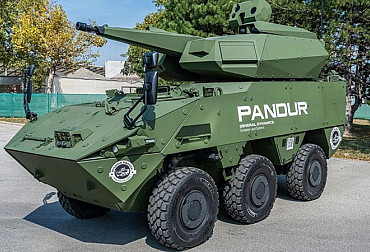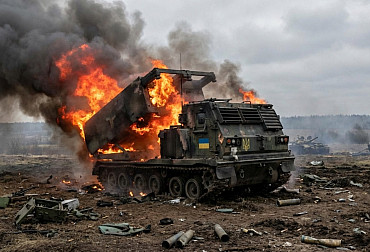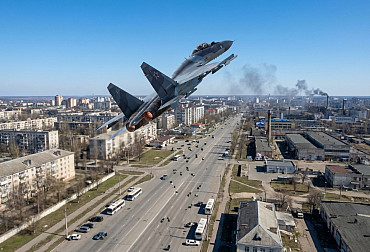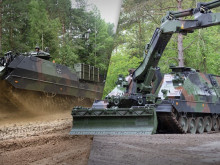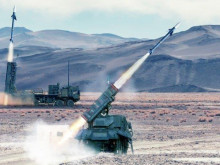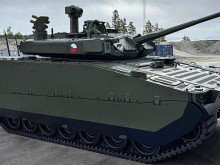Adaptation of Czech defence to climate challenges and raw material dependencies
The global security architecture is undergoing fundamental changes. Climate change is no longer purely an environmental issue; it is increasingly affecting military planning. It influences regional stability, access to natural resources, the strategic mobility of armies, and the technological priorities of states. As stated in a new strategic document from the Ministry of Defence, ‘climate change and its consequences bring risks that affect all areas of society, including defence and security.’ This approach reflects the position of NATO and the EU, which consider climate phenomena to be a multiplier of crises threatening geopolitical stability.
The Czech Republic has therefore adopted the "Plan for Managing the Impact of Climate Change on the Defence of the Czech Republic" (hereinafter referred to as the Plan). Its task is to ensure that the army remains combat-ready even in extreme conditions while minimising its own carbon footprint. The document emphasises that the measures must be "in line with national policies and strategies for climate and environmental protection, without compromising the combat readiness of the armed forces and the defence capability of the Czech Republic".
Why is this issue becoming so crucial? As Jiří Šedivý from the Defence Policy Section of the Ministry of Defence pointed out, "climate change is not only an environmental problem, but also a security issue". It affects regional stability and the availability of natural resources, and also increases the risk of new conflicts and accelerates migration. "It also changes the conditions in which our soldiers operate," said Jiří Šedivý. NATO has been integrating climate risks into its planning processes since 2021 and has set a target of reducing CO₂ emissions by 45% by 2030. It aims to become climate neutral by 2050.
For the Czech defence sector, this means significant investment in technologies that reduce dependence on fossil fuels and ensure the energy self-sufficiency of bases. The concept of ‘smart bases’ based on renewable sources, battery storage and intelligent energy management is no longer a vision of the future, but is becoming a necessity. The plan states: "When assessing options for risk elimination, emphasis will be placed on technologies that reduce dependence on external energy suppliers, such as the use of renewable sources, effective water management solutions, and the possibility of building smart bases." The first pilot projects are being considered for ammunition depots and logistics centres of the Czech Armed Forces.
Great emphasis is also placed on water collection and recycling technologies. In extreme conditions during foreign missions, equipment capable of generating drinking water from the atmosphere will be deployed. These technologies, which are already being tested by some Alliance armies, will reduce dependence on tanker deliveries. The plan mentions "the use of water purifiers or water extraction from the air," which is essential for long-term operations in drought-stricken areas.
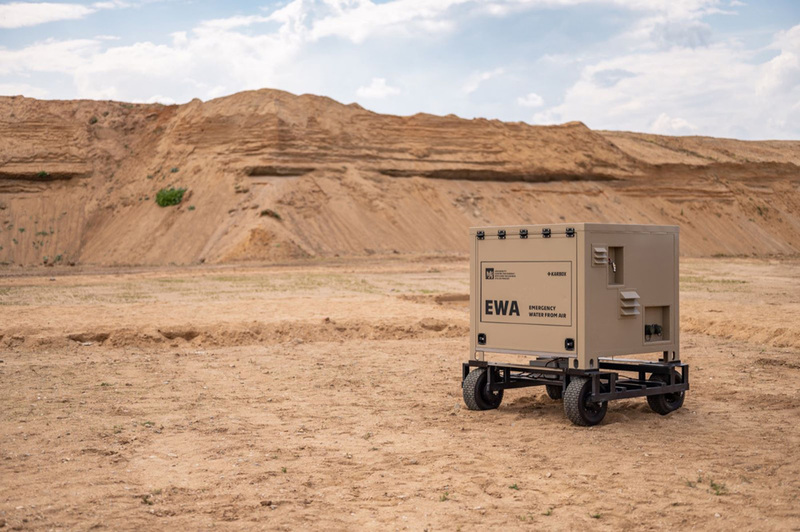
Another way to conserve natural resources is to electrify logistics systems. The low noise and lower heat footprint of electric vehicles can be a tactical advantage. The first phase will involve non-combat vehicles for transport between bases or facilities. The army is also considering hybrid technologies for combat equipment. At the same time, portable photovoltaic systems are being tested to power sensors and communication equipment in field conditions.
However, the protection of supply chains remains a challenge. Electromobility, energy storage and modern materials are increasing demand for critical raw materials, which are controlled by China. The Ministry of Defence therefore states: "The transition to renewable energy and fuel sources must not create new technological and raw material dependencies on countries that act against the interests of the Czech Republic. The risk of such dependencies is associated primarily with China, which currently dominates the processing of key raw materials." China controls over 80% of the world's refining capacity for rare earths, which are essential for electric motors, batteries and optoelectronic systems.
China's green technology strategy has almost certainly become a deliberate tool of geopolitical influence. According to European Commission data, more than 60% of solar panel supplies in the EU come from China. This means that even projects to reduce emissions can create new dependencies. China is also using its Belt and Road Initiative strategy to export green technologies and strengthen political ties. In Europe, it is financing wind farms, e-mobility infrastructure and processing capacities, thereby gaining access to sensitive data and know-how. Without control mechanisms, these investments can become a tool for political pressure.
The European Critical Raw Materials Act responds to this situation. It emphasises the need to strengthen domestic extraction, processing and recycling in order to free Europe from its dependence on China. For the Czech Republic, this means supporting European raw materials security projects and, when purchasing weapons systems, giving preference to supply chains without the risk of Chinese influence. At the same time, it is necessary to protect critical infrastructure from cyber threats, as Chinese companies with ties to the communist government are seeking to acquire stakes in energy networks and telecommunications systems that are key to the functioning of defence.
Climate change also affects the operational environment. Extreme temperatures, droughts, floods, and forest fires reduce the maneuverability of units, burden logistics, and increase the cost of equipment maintenance. "The impacts of extreme weather events impair the mobility and maneuverability of ground forces, restrict air operations, reduce the availability of air support, and threaten flight safety," states the Plan. This means higher demands on training, health care, and the physical preparedness of soldiers. Future missions will take place in environments where water will be as valuable as fuel and where survival depends on self-sufficiency.
There is room for innovation in the field of defense research. The Czech Republic plans to use the European Defense Fund framework and the activities of the European Defense Agency to finance projects focused on low-emission technologies, the circular economy, and material recycling. The document states: "Adapting to climate change requires adequate investment in new technological solutions, processes, and organizational innovations. The defense industry must therefore have access to sufficient funding from both private and public sources." This includes, for example, the development of lighter materials for ballistic protection, durable batteries for extreme temperatures, and base energy efficiency monitoring systems.
Climate security is no longer a marginal issue and is becoming part of strategic defense planning. Both NATO and the EU require member states to incorporate environmental factors into procurement processes, training, and military operations planning. This means not only installing photovoltaic sources on military facilities, but also testing equipment and weapons in extreme conditions. New materials, lighter ballistic protection, durable battery systems, and smart sensor networks are investments in climate protection and battlefield survival.
However, no measure may jeopardize the fundamental function of the army—the defense of the state. The plan repeatedly emphasizes: "Adaptation and mitigation measures must not jeopardize the combat readiness of the armed forces and the defense capability of the Czech Republic." The Ministry of Defense is therefore taking a pragmatic approach: transitioning to renewable energy sources where it does not jeopardize the success of operations, and diversifying technologies to avoid new dependencies.
The entire process will be monitored in accordance with international commitments. Both NATO and the EU have set measurable targets, and the Czech Ministry of Defense will therefore introduce "tools for measuring the carbon footprint of its activities in line with NATO and EU recommendations." This is a matter of transparency and political trust, especially at a time when criticism of military emissions is growing. According to a study by the Modern Diplomacy website, the armed forces account for up to 5.5% of global greenhouse gas emissions.
Although the Czech Republic cannot compete with the emissions of the superpowers, its approach will be a test of its ability to combine climate responsibility with national security. The implementation plan for the Intention will be completed in 2026, and its fulfillment will be evaluated every two years. Success will be determined by political will, the ability of the military and industry to innovate, and the ability to resist the pressures of new dependencies. In an environment where climate influences geopolitics as much as energy and technology, this ability will become an important element of sovereignty.











